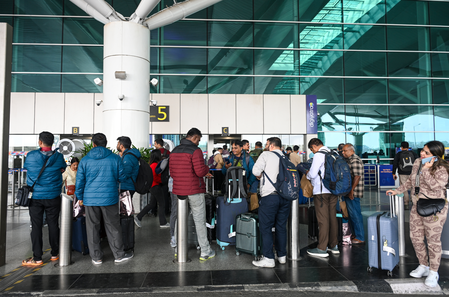 Editorial – Understanding Historical Narratives in the Israeli-Palestinian Conflict
Editorial – Understanding Historical Narratives in the Israeli-Palestinian Conflict(RAHNUMA) In the complex and deeply rooted Israeli-Palestinian conflict, historical narratives play a crucial role. Some extremists have attempted to misuse certain biblical passages to justify their calls for extreme measures, such as genocide, against the Palestinian people. It’s essential to address these narratives while advocating for a peaceful resolution, rejecting the calls for a single-state solution.
The misuse of biblical texts to justify violence against any group is not only morally reprehensible but also inconsistent with the principles of peace and coexistence. Let’s explore some of these passages from the Old Testament, such as Exodus 23:27-30, which reads:
“27 I will send my terror in front of you, and will throw into confusion all the people against whom you shall come, and I will make all your enemies turn their backs to you. 28 And I will send the pestilence in front of you, which shall drive out the Hivites, the Canaanites, and the Hittites from before you. 29 I will not drive them out from before you in one year, or the land would become desolate and the wild animals would multiply against you. 30 Little by little I will drive them out from before you, until you have increased and possess the land.”
Additionally, Leviticus 18:24-28 states:
“24 Do not defile yourselves in any of these ways, for by all these practices the nations I am casting out before you have defiled themselves. 25 Thus the land became defiled; and I punished it for its iniquity, and the land vomited out its inhabitants. 26 But you shall keep my statutes and my ordinances and commit none of these abominations, either the citizen or the alien who resides among you 27 (for the inhabitants of the land, who were before you, committed all of these abominations, and the land became defiled); 28 otherwise the land will vomit you out for defiling it, as it vomited out the nation that was before you.”
And Leviticus 20:22-23 reads:
“22 You shall keep all my statutes and all my ordinances, and observe them, so that the land to which I bring you to settle in may not vomit you out. 23 You shall not follow the practices of the nation that I am driving out before you. Because they did all these things, I abhorred them.”
These passages should be understood within their historical context, and it’s important to acknowledge the historical perspective that some extremists use to claim Canaanite origins for the Palestinian people.
While some extremists may draw upon these passages and historical claims, it is vital to remember that the majority of Israelis and Palestinians, as well as the international community, are committed to a peaceful resolution. The majority of Israelis and Palestinians seek to coexist and live side by side in two separate states, each with its own national identity, sovereignty, and security.
The idea of a two-state solution offers the best path towards a lasting peace in the region. It acknowledges the right of both Israelis and Palestinians to self-determination, sovereignty, and security. It recognizes the historical and contemporary narratives of both parties, seeking a fair and just compromise that can bring an end to the violence and suffering that has persisted for far too long.
Calls for a one-state solution are misguided and unhelpful. A single state, without addressing the legitimate aspirations of both Israelis and Palestinians, would likely lead to continued conflict and instability. A two-state solution, on the other hand, respects the aspirations and identities of both nations while fostering cooperation and mutual respect.
The path to peace in the Israeli-Palestinian conflict is a challenging one, but it is not insurmountable. We must reject extremist voices that misuse history and religion for violent ends and instead work towards a two-state solution. The international community must continue to support diplomatic efforts and encourage dialogue between the parties involved.
As we strive for a better future for the region, let us remember that peace and coexistence are possible when we embrace the principles of justice, respect, and compromise. The road ahead may be arduous, but it is the only path that leads to a brighter, more peaceful tomorrow for both Israelis and Palestinians.








